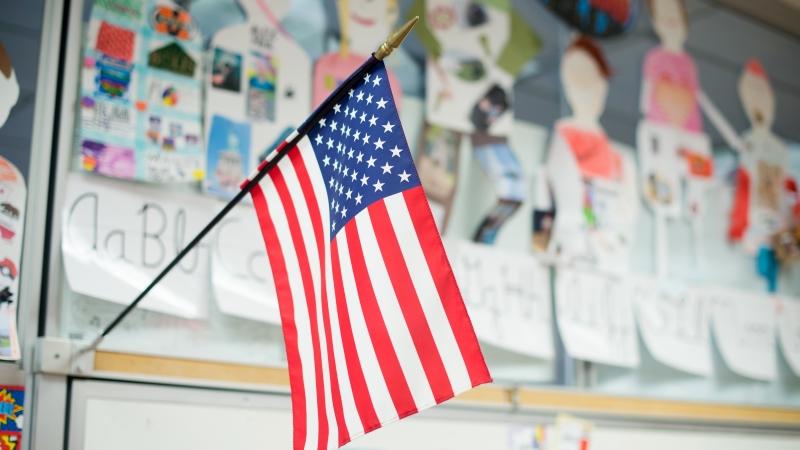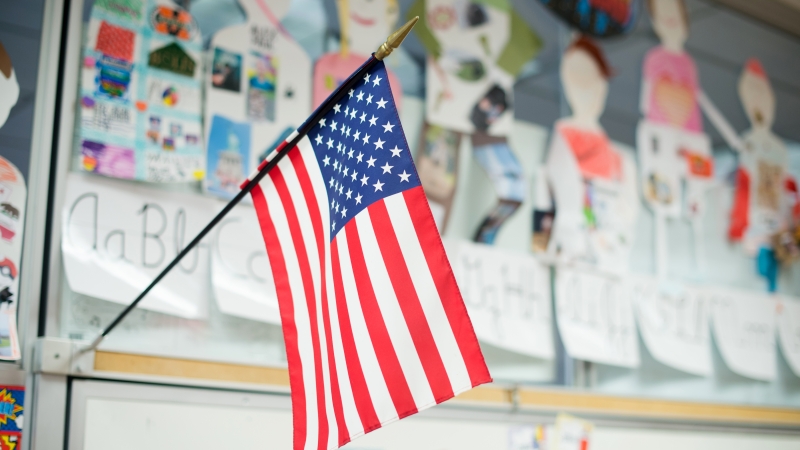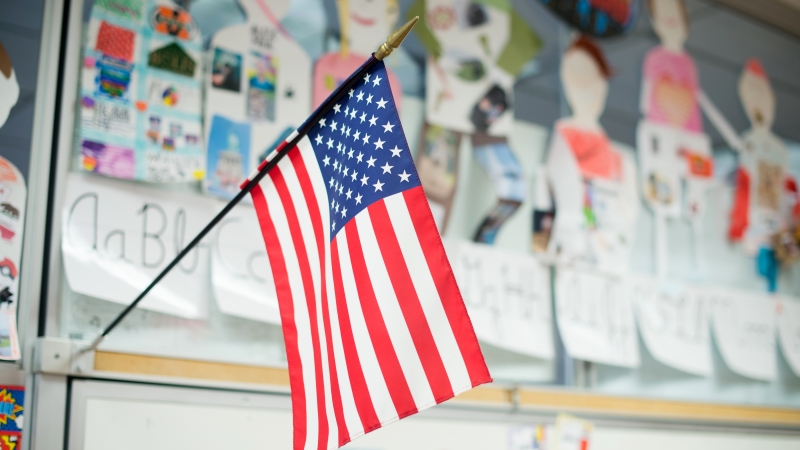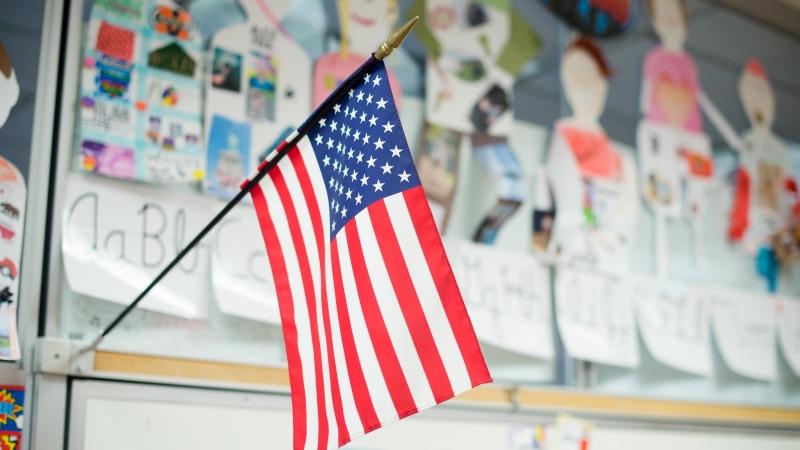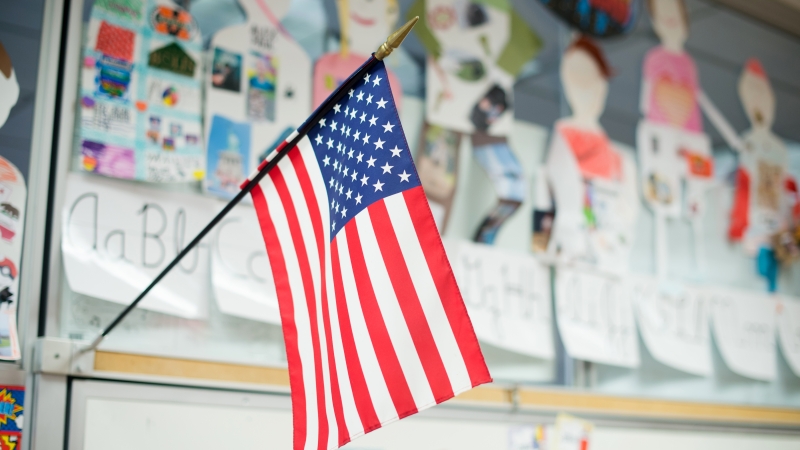
Virginia Board of Education Meeting Summary
5-7-2020
Virginia Board of Education Meeting
May 7, 2020
Revisions to the Regulations Governing Secondary School Transcripts
The Board approved revisions to the Regulations Governing Secondary School Transcripts (8VAC20-160-10, et. seq). The. The Board’s revisions reflect changes in professional practice at postsecondary institutions and business and industry and are intended to align elements contained in the student transcript with the needs and demands of postsecondary partners.
The last full revision to the Regulations Governing Secondary School Transcripts was approved by the Board of Education in 2007. In May 2016, the Board of Education approved an amendment to the wording of 8VAC20-160-30, Item #25, of the Regulations Governing Secondary School Transcripts, to add an opt-out policy to allow flexibility for certain students who did not want standardized test scores sent to postsecondary institutions. The amendment to add the opt-out policy was a result of numerous educator and constituent calls expressing concerns with the mandate to send standardized test scores as a part of the official transcript.
The adopted revisions to the Regulations Governing Secondary School Transcripts were last discussed by the Board at their January 23, 2020, meeting. One revision was made as a result of Board feedback since that time. The definition of “Verified unit of credit” or “verified credit” was changed to accurately reflect the definition provided in the Regulations Establishing Standards for Accrediting Public Schools in Virginia (SOA), 8VAC20-131-5.
Details of all adopted revisions are available at http://www.doe.virginia.gov/boe/meetings/2020/05-may/item-a.docx
Revisions to the Fine Arts Standards of Learning
The Board approved revisions to the Fine Arts Standards of Learning. The standards are grouped into the following strands that address related content and skills: Creative Process; Critical Thinking and Communication; History, Culture, and Citizenship; Innovation in the Arts; Technique and Application. The major elements of the attached proposed revised Fine Arts Standards of Learning include:
- Alignment and inclusion of the 5Cs: Critical Thinking, Creative Thinking, Communication, Collaboration, and Citizenship.
- Alignment to the applicable skills within the Virginia Workplace Readiness Skills;
- Reorganization of the applicable 2013 Standards to the up-dated strands.
- Edits to enhance clarity, specificity, rigor, alignment of skills and content, and a reflection of the current academic research and practice.
- Addition of Dance Arts Standards of Learning for grades K-5 and 7-8.
- Addition of Theatre Arts Standards of Learning for grades K-5.
- Revisions of language and wording to reflect improved cultural competency.
- Shift in focus from the simple use of technology to a focus on innovation of the art form using contemporary and emerging media, tools, and processes for the creation and presentation of fine arts works.
- Restructure the three levels of stand-alone Standards of Learning for Guitar to be included in Instrumental Music standards at all seven levels of secondary instruction.
The 2020 Fine Arts Standards of Learning include revisions since first review (March 21, 2019) in response to public comment, summarized below, using the following revision protocol:
- Single Underline (example): Additions to the 2013 Fine Arts Standards of Learning for first review
- Single strikethrough (example): Deletions to the 2020 Fine Arts Standards of Learning for first review
- Double Underline (example): Additions to the 2013 Fine Arts Standards of Learning since first review
- Double strikethrough (example): Deletions to the 2020 Fine Arts Standards of Learning since first review
Key revisions of First Review drafts based on public comment include:
- Edits to provide consistency and clarity of language.
- Edits for stronger scaffolding of skills and concepts for K-12 alignment.
- Corrections of typographic and grammatical errors.
- Added creative expression standards back to Instrumental Music standards under Technique and Application.
- Clarification of language in the Creative Process standards, especially for General Music K-5.
- Corrections and clarifications made to Guitar standards.
- Improved scaffolding of Creative Process standards in Theatre and Dance at the middle level (grades 6-8).
Public comments that indicated questions and concerns will be addressed through the development of resources and professional development opportunities. Documents detailing the separate standards for Dance Arts, Music, Theatre Arts, and Visual Arts are available at attachments under Agenda Item B via: http://www.doe.virginia.gov/boe/meetings/2020/05-may/agenda.shtml
The Board approved revisions Virginia school bus driver physical forms to reflect the recommendation of the National Transportation Safety Board (NTSB) that all state school bus driver physical forms include an additional driver certification in the event the driver develops a physical condition that could affect their ability to perform the duties of a school bus driver before the expiration of their annual physician’s certificate.
Recommended Cut Scores for the Grades 3-8 and End-of-Course Standards of Learning Reading Tests Based on the 2017 English Standards
The Board decided to postpone a discussion of recommended Cut Scores for the Grades 3-8 and End-of-Course Standards of Learning Reading Tests Based on the 2017 English Standards to a future meeting.
Virginia’s Perkins V State Plan
The Board approved the 2020-2024 Virginia Perkins V Four-Year State Plan; established a reserve fund based on maintaining the 85/15 split of funds between secondary and postsecondary as outlined in Attachment B; and authorized the Department of Education staff to make technical edits, if necessary, and continue with the requirements for submission of the state plan to USDE by June 15, 2020.
The full plan, including details on the reserve fund are available at:
http://www.doe.virginia.gov/boe/meetings/2020/05-may/item-g.docx
The Board of Education adopted emergency guidelines to the current Career and Technical Education Work-Based Learning Guide to provide flexibility to students and local school divisions for internship and cooperative education experiences. These emergency guidelines are meant to supplement the Career and Technical Education Work-Based Learning Guide that are in effect until June 30, 2020. The revised Career and Technical Education Work-Based Learning Guide, approved by the Board in November 2019, is still scheduled to go into effect on July 1, 2020.
Under the current Guide, any student enrolled in a cooperative education experience or internship must meet a 280 hour requirement to earn a standard unit of credit. For students enrolled in a cooperative education experience or internship for the 2019-2020 school year only, the 280-hour requirement for cooperative education and internships is reduced to 140 hours to earn a standard unit of credit.
School divisions must award standard credit for high school credit-bearing courses by ensuring that the student has demonstrated mastery in a majority of the standards, competencies, and objectives, including those that are essential for success in subsequent coursework. This process must be based on the Emergency Guidelines for Local Alternatives to Awarding Standard Units of Credit, approved by the Board on April 2, 2020.
The Board adopted revisions to the Family Life Education Board of Education Guidelines and Standards of Learning for Virginia Public Schools are in response to changes to Virginia Code resulting from legislation passed during the 2018 and 2019 Virginia General Assembly. The proposed revisions align the guidelines with 2018 and 2019 legislative changes but do not reflect a comprehensive review.
During the 2018 Virginia General Assembly, two bills were passed that require revisions to the FLE Standards and curriculum:
- HB 45 (Filler-Corn) requires that “any family life education curriculum offered in any elementary school, middle school, or high school shall incorporate age-appropriate elements of effective and evidence-based programs on the importance of the personal privacy and personal boundaries of other individuals and tools for a student to use to ensure that he respects the personal privacy and personal boundaries of other individuals.”
- SB 101 (McClellan) “requires any high school family life education curriculum offered by a local school division to incorporate age-appropriate elements of effective and evidence-based programs on the prevention of sexual harassment using electronic means.” The bill also permits any “family life education curriculum offered by a local school division to incorporate age-appropriate elements of effective and evidence-based programs on the prevention, recognition, and awareness of child abduction, child abuse, child sexual exploitation, and child sexual abuse.”
Three bills were passed by the 2019 General Assembly that require revisions to the FLE Standards and curriculum:
- HB 2205 (Filler-Corn) “requires any high school family life education curriculum offered by a local school division to incorporate age-appropriate elements of effective and evidence-based programs on the law and meaning of consent. Under current law, such elements are permissive in any high school family life education curriculum.”
- SB 1141 (Favola) “requires the Board of Education, in its curriculum guidelines for family life education, to include instruction on the prevention of human trafficking. Additionally, the bill requires any high school family life education program offered in a local school division to incorporate age-appropriate elements of effective and evidence-based programs on the prevention of human trafficking.”
- SB 1159 (Black) “requires any family life education curriculum offered by a local school division to incorporate age-appropriate elements of effective and evidence-based programs on the harmful physical and emotional effects of female genital mutilation, associated criminal penalties, and the rights of the victim including any civil action.”
A copy of the revised Board guidelines is available at:
http://www.doe.virginia.gov/boe/meetings/2020/05-may/item-i-attachment-a.docx
Proposed Revisions to the Computer Technology Standards of Learning
The Board received for first review the proposed 2020 Computer Technology Standards of Learning. Since the adoption of the Computer Science Standards of Learning in 2017, there has been considerable misunderstanding of the distinctions between computer technology, computer science, and the standards for the two areas.
Therefore, to avoid any misunderstanding and to emphasize the essential role of technologies in the deeper learning experiences of students, as digital citizens in an ever-increasing digital world, through integrated instruction in all content areas, it is proposed that the Computer Technology Standards of Learning be renamed the Digital Learning Integration Standards of Learning. The proposed 2020 Computer Technology Standards of Learning will also replace the current Computer Technology Standards of Learning by focusing less on actual technologies or devices (spreadsheets, word processors, keyboard, etc.) and the use (interact, edit, open, etc.) of them and more on the integration of the technologies in students’ learning experiences. The proposed standards delineate seven roles students function in during their learning: 1) Empowered Learner, 2) Digital Citizen, 3) Knowledge Constructor, 4) Innovative Designer, 5) Computational Thinker, 6) Creative Communicator, and 7) Global Collaborator.
Following the Board’s acceptance of the proposed 2020 Computer Technology Standards of Learning for first review, the Department of Education will receive public comment for at least 30 days before bringing the proposed 2020 Computer Technology Standards of Learning to the Board of Education for final review in July 2020. During the public comment period, the Board of Education will host public hearings on the proposed 2020 Computer Technology Standards of Learning.
Details on the proposed Digital Integration Standards of Learning are available at: http://www.doe.virginia.gov/boe/meetings/2020/05-may/item-j-attachment-a.docx
Details on the proposed Computer Technology Standards of Learning are available at: http://www.doe.virginia.gov/boe/meetings/2020/05-may/item-j-attachment-b.doc
The Board adopted the Advisory Board on Teacher Education and Licensure's recommendation to establish dual language endorsements preK-6 in the Regulations Governing the Review and Approval of Education Programs in Virginia.
The requirements for the new endorsement are available at:
http://www.doe.virginia.gov/boe/meetings/2020/05-may/item-k.docx
The Board received for first review the Advisory Board on Teacher Education and Licensure recommendations to establish an Economics and Personal Finance (Add-on Endorsement) in the Licensure Regulations for School Personnel and the Regulations Governing the Review and Approval of Education Programs in Virginia.
The proposed requirements for the add-on endorsement are available at:
http://www.doe.virginia.gov/boe/meetings/2020/05-may/item-l.docx
Division Level Memoranda of Understanding
The Board received for first review division-level MOUs for the Danville City Public Schools and for the Prince Edward County Public Schools.
Revisions to the List of 2020-2021 Board of Education Approved Industry Certifications, Occupational Competency Assessments, and Professional Licenses
The Board approved 32 new industry certification examinations, occupational competency assessments, and professional licenses to meet the Board of Education’s requirements for (1) graduation effective for the students who entered ninth grade prior to the 2018-2019 school year, (2) requirements for graduation effective with the students who enter the ninth grade in the 2018-2019 school year, and (3) requirements for the Career and Technical Education, Advanced Mathematics and Technology, and STEM Seals. The Board also approved the removal of 19 credentials which are no longer offered by the providers.
Details on all the additions and removals are available at:
http://www.doe.virginia.gov/boe/meetings/2020/05-may/item-o.docx
Written Reports
The Board received written reports on the 2020 General Assembly session and on the proposed transition of early childhood functions to the Department of Education. Both reports are available at: http://www.doe.virginia.gov/boe/meetings/2020/05-may/agenda.shtml (under Agenda Items P and Q)
